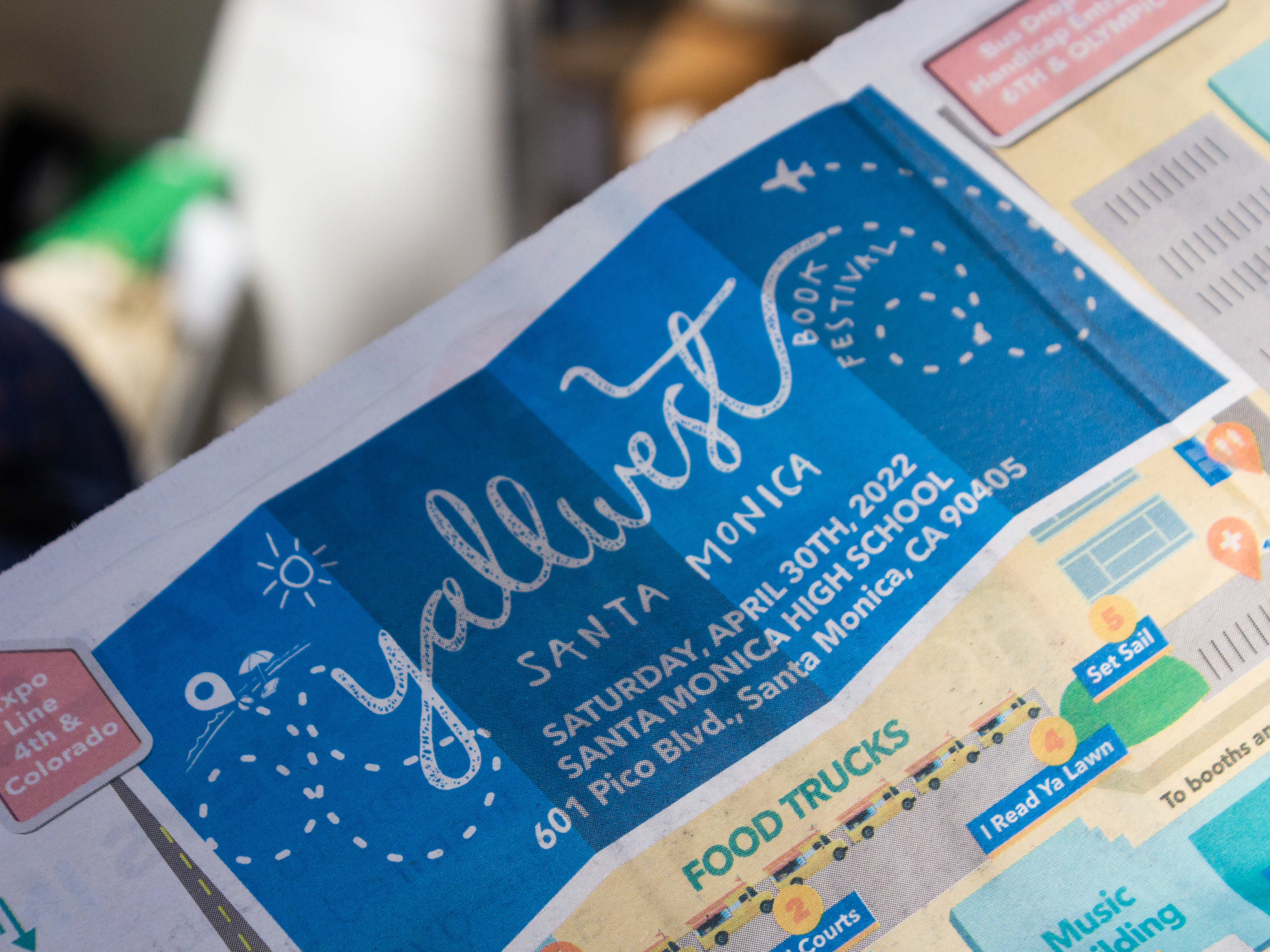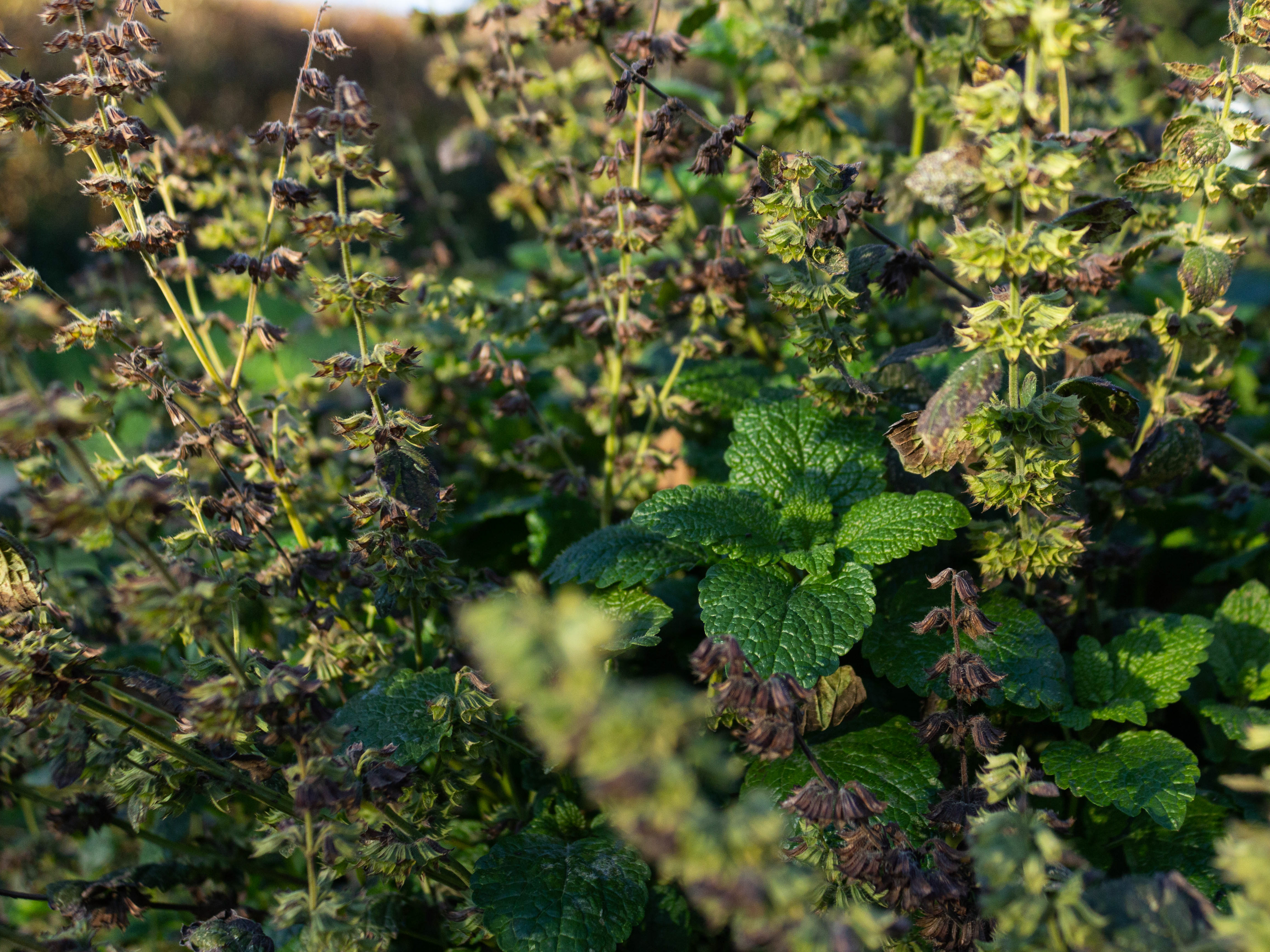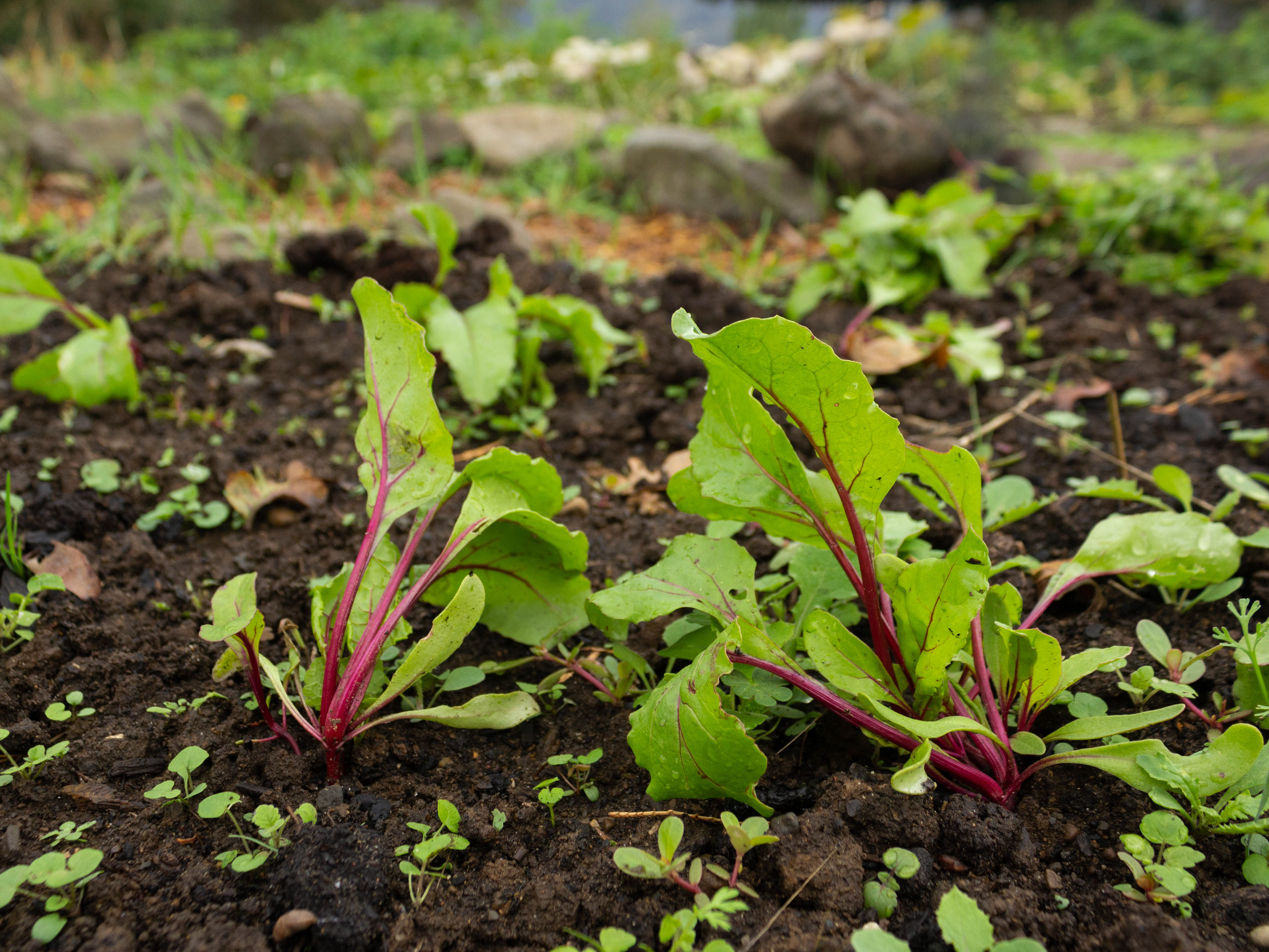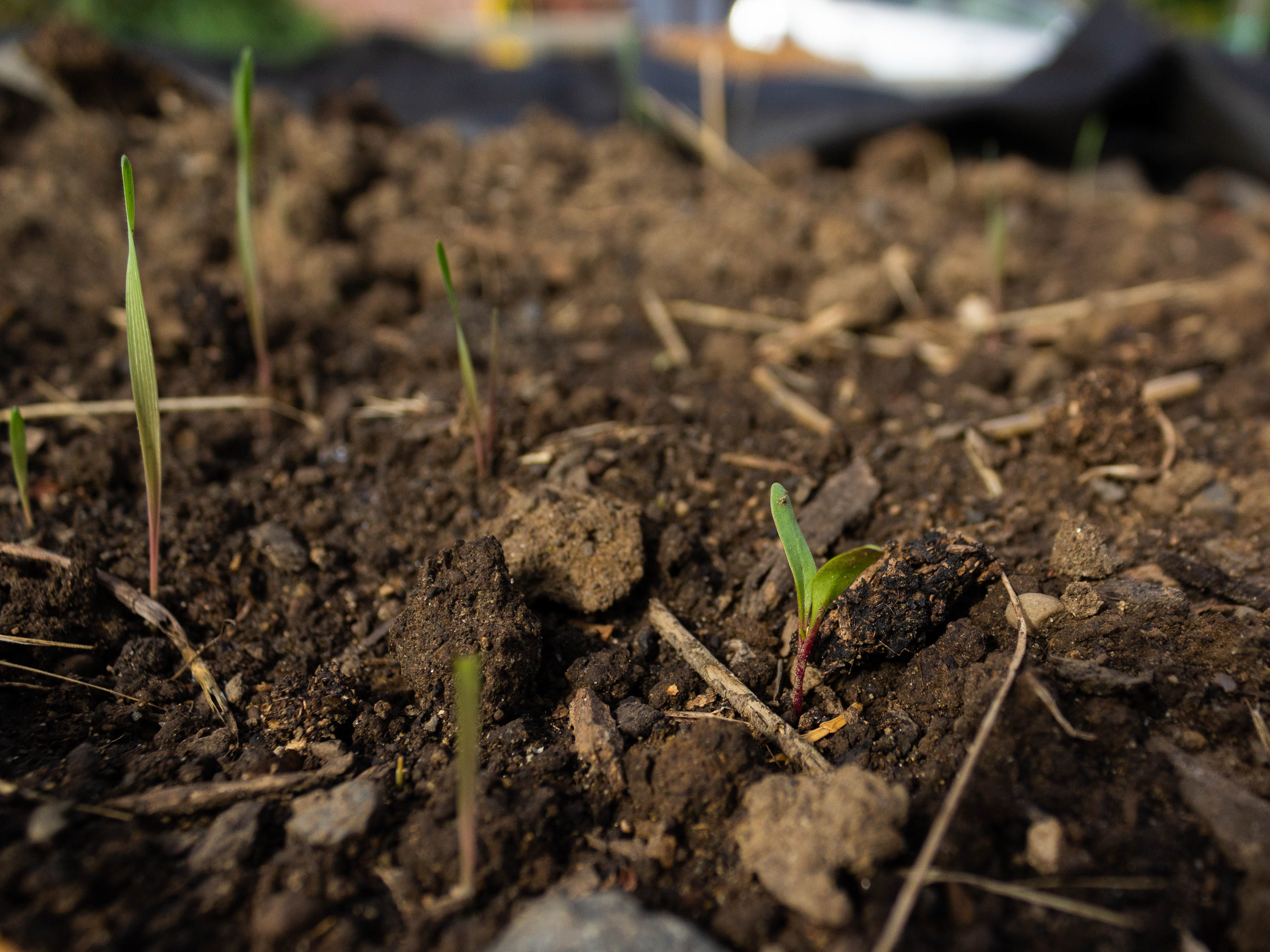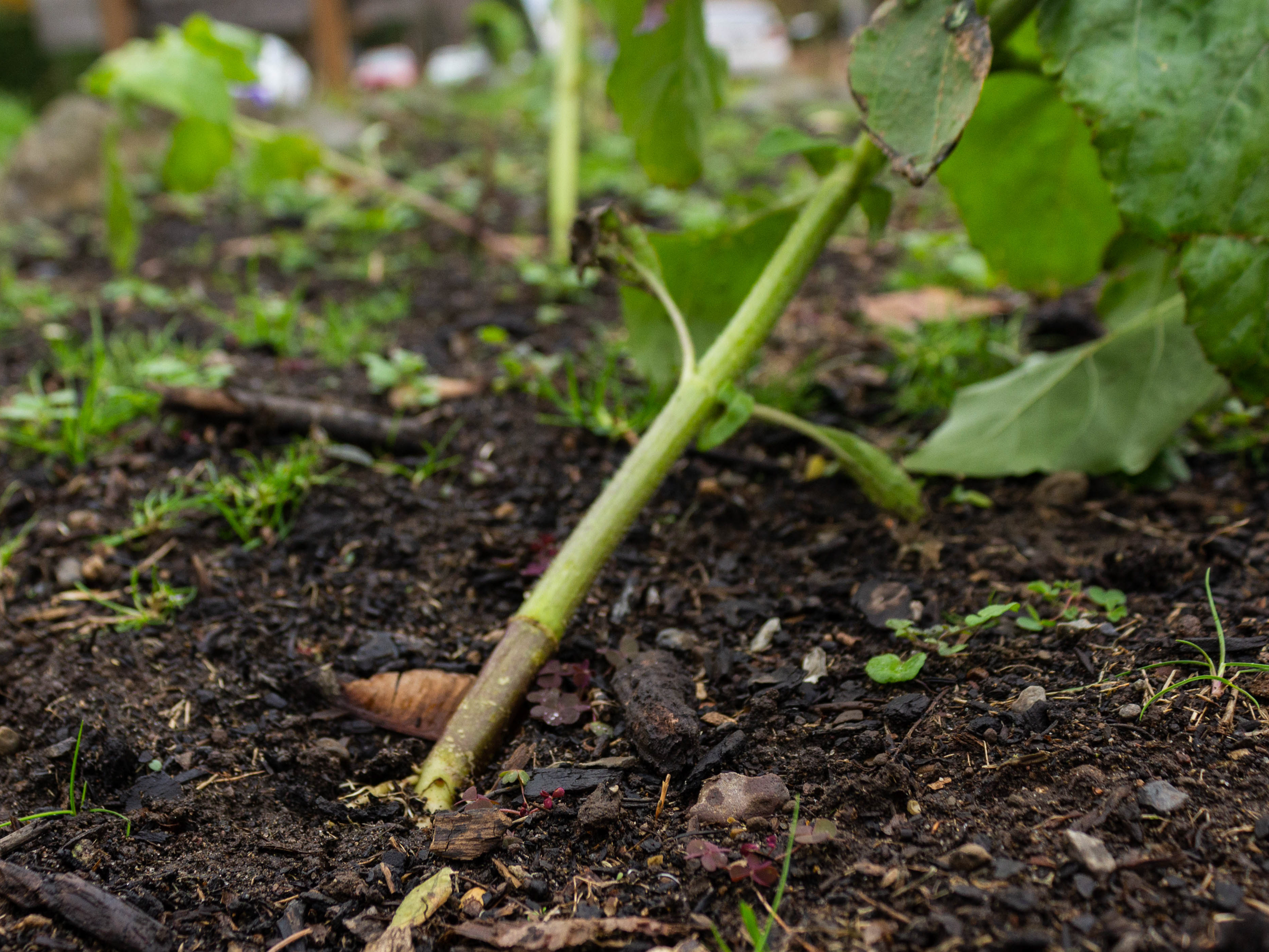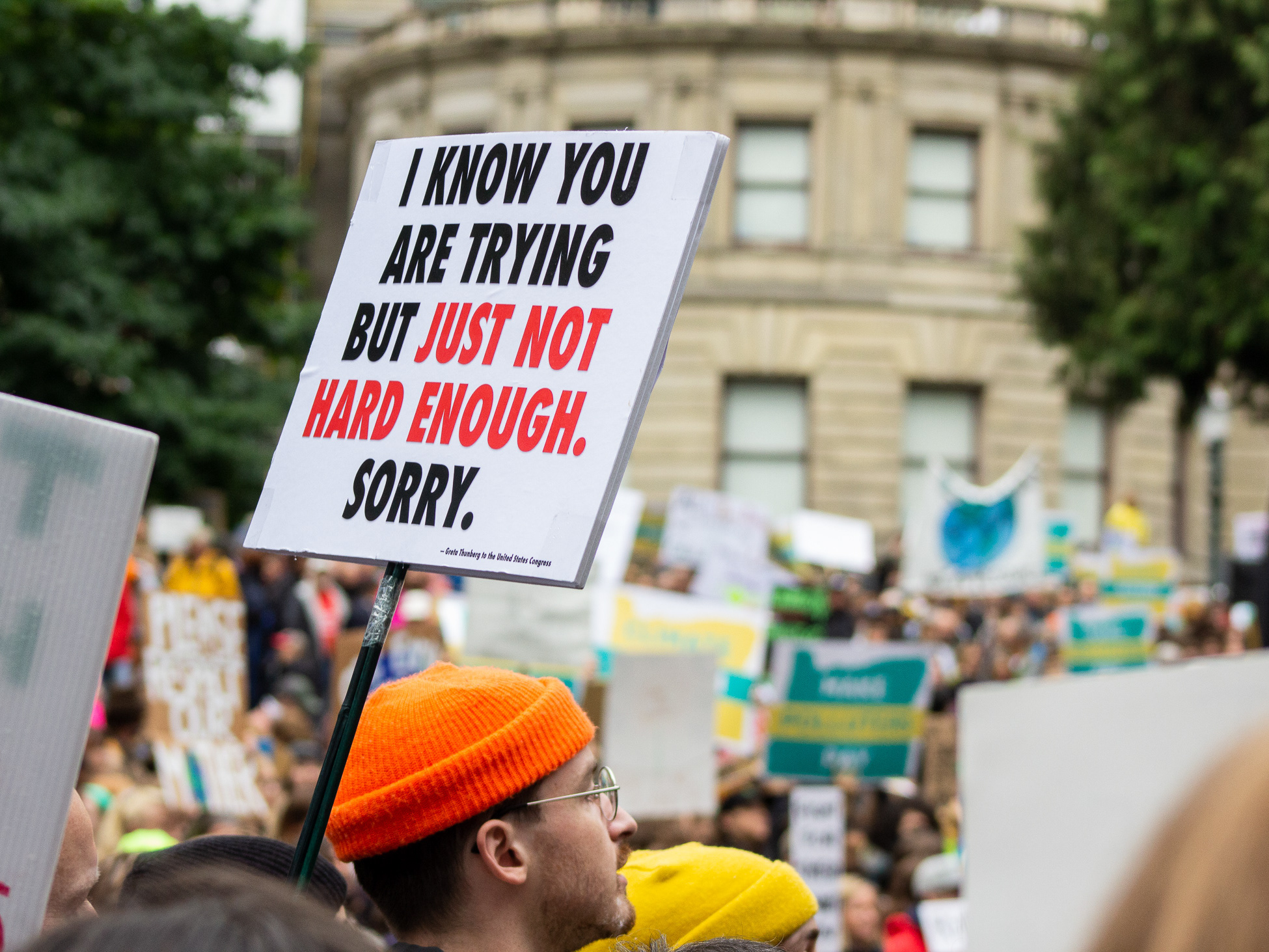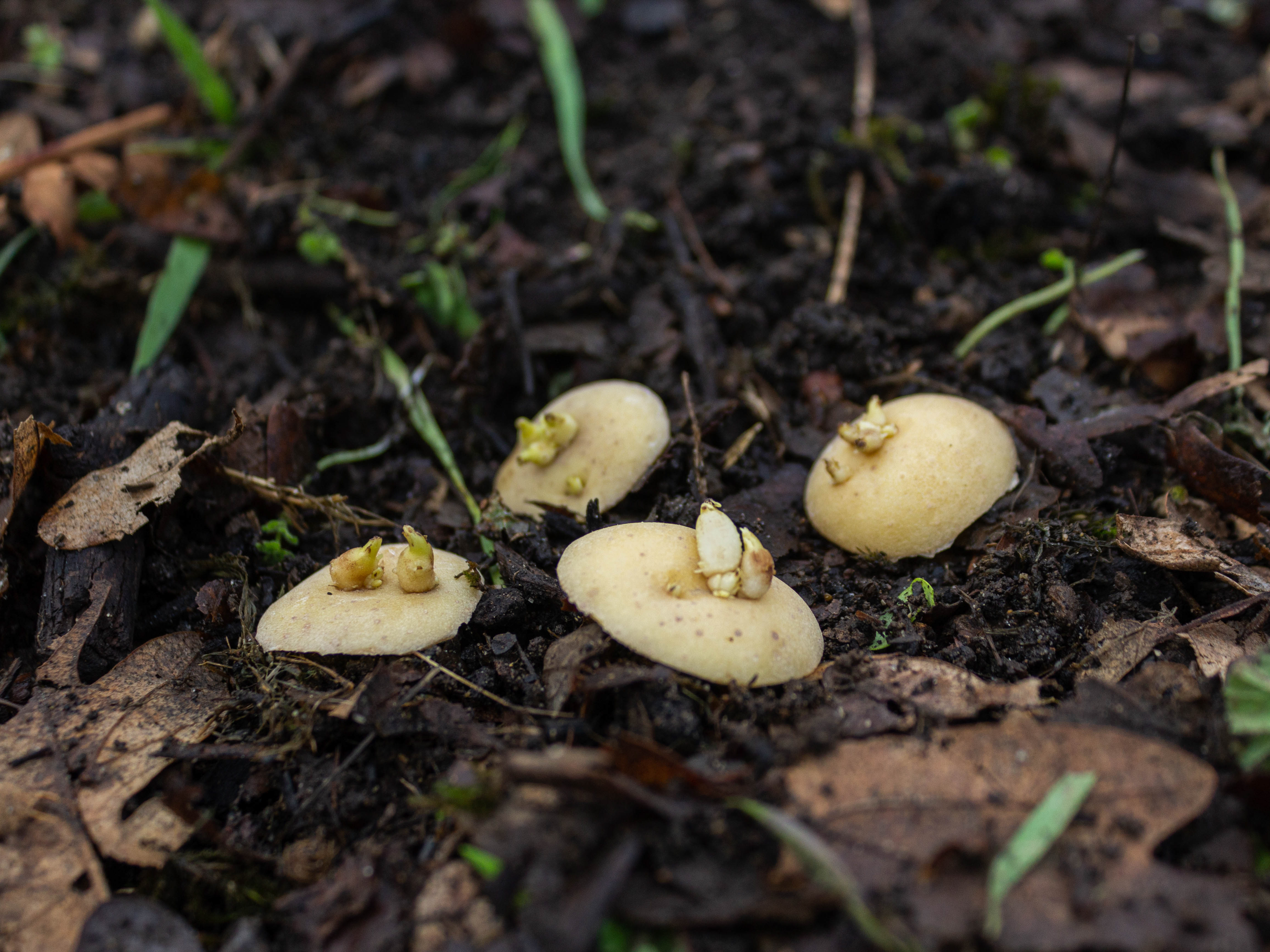Halloween on a Saturday is an occurrence that comes once in a blue moon. Regardless, we spent the morning out in the garden as usual. Now that it’s the end of October, the weather has been getting progressively colder and as much as I’m in denial about it, it’s here for good. When we showed up to the garden, our pumpkin plants, which had been doing so well, were dead. Even though the stems were still a healthy-looking green, the leaves were all limp on the ground and black with decay. It was really sad to see the plants like that especially since we were so excited when they first sprouted a month ago. Pumpkins definitely aren’t cold weather plants, and even though they had been thriving thus far, the recent drops in temperature must have pushed them past their tolerance. For now, we’ll keep them in the bed, just to keep something in the garden since it is emptying out quite quickly.
On a happier note, our beets are still looking okay, as are the handful of chard plants and the sunflowers. Josie’s mystery seeds had yielded a couple of unspecified leafy greens which are still holding on. So not all is lost.
Today in the garden we removed the last squash plant, which was shriveled and decayed and covered in mildew. You know a plant is ready to go when there’s virtually no resistance when you go to pull it out of the ground. After removing the last of the vines and chopping them up for the compost pile, we gave the bed and the paths around it a good weeding. Unfortunately, even though we spent close to two hours weeding, we only cleared out a small section of the garden. While it offered a nice sense of closure in the sense that we were truly giving that whole area a fresh start by pulling everything out.
I did a bit of research, searching “what to plant in November” and, surprise, it turns out there’s really not a lot you can plant in the winter, except for garlic. Most gardeners recommend just getting soil ready for the spring season. So after we cleared the former squash bed out, a couple of friends helped us cover the bed up with a mix of leaves and grass clippings. Hopefully all that organic matter breaks down and helps to make our soil nice and nutrient rich.
It almost has an ominous feeling to it - the garden is going dormant. Especially in comparison to how full and productive the garden was the past few months, I’m afraid it’ll look neglected and sad now that it’s so empty. It feels almost wrong, since I have such a strong association with this place as somewhere I can go and always see something growing or changing, where there will be something new to look forward to in the very near future. But with the onset of winter, that anticipation will have to carry me all the way through into the next year!
But no matter how I feel about it, this is just how nature works. The cold winter months are a time to rest and regain strength, to prepare for another trip around the sun. Nature has its cycles and there’s nothing we can do about it, especially at such a small scale.
It really makes me think about large scale agriculture production and how accustomed we’ve become to having fresh produce staples all year round. There are always bananas, apples, onions, lettuce, broccoli, and tomatoes in the supermarket, no matter the time of year. But our apple trees dropped the last of their fruit months ago and our tomatoes are done producing. How are farmers producing all of these out of season goods for us? Our fruits and vegetables must be coming from miles away where it is sunny enough to be growing and producing year round. Those poor plants, the poor land. They never get a rest. A constant cycle of grow, grow, grow. No wonder chemicals are needed to intervene and bolster the process. No wonder the soil gets whisked away by the wind, having all of its nutrients depleted.
I was almost going to say we would be appalled if humans were to work this way, but then I realized we do kind of work and live this way – long work days and work weeks and not much vacation time to show for it. And clearly, it’s not healthy. I think we could all take this lesson from nature in this respect (and many others too). We need to make it more acceptable to take rests, to take time to restore ourselves. It’s a valuable way to spend time and resources, especially if that means you’re going to be more productive on the other side.
